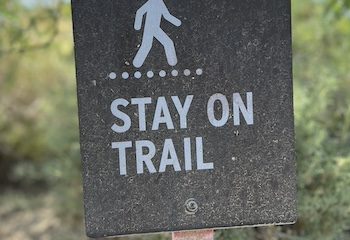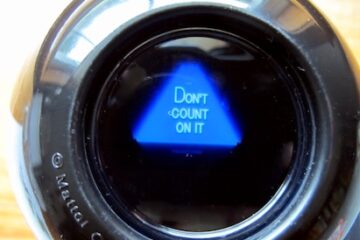The new anxiety of going on vacation—pressing back against a constricting comfort zone
I’m in Mexico this week, on vacation.
(If you’re wondering: I don’t schedule posts in advance. I know that’s how real content producers do it. And maybe someday I’ll do that. But today is not that day. I am indeed truly writing this post in the kitchenette of a timeshare in Cabo, with whales visible in the ocean not far away.)
I used to travel a lot. I have been to a good number of foreign places. Tokyo, Lisbon, Vienna, Edinburgh, Kathmandu, and several more.

I’ve never been what I would call an adventurous traveler. I don’t take many risks. I tend to see unpredictability as stress, not as excitement.
Even so, I’ve found that my comfort zone has shrunk over the last few years, and that surprises me. I thought when my kids were grown, I’d feel more drawn to see new things, not more comfortable staying in my usual places.
I don’t know what’s caused this, exactly. The pandemic? The polarization of the world? The instability of the economy? How alarmist the daily news has become? Recent personal experience with an untrustworthy and abusive person?
Maybe all those things. Maybe something else.
Regardless, it’s brought me some unfamiliar internal conflict.
As the date of this trip neared, I found myself getting irrationally nervous about it in ways I haven’t been nervous about travel in the past.
My way of dealing with this was to remind myself of two things:
First: Which values are more important?
I value growth, curiosity, and learning. I also value safety, comfort, and convenience. So when these two sets of values conflict, I have to decide which will win out.
We do this all the time, every day, in big decisions and small. Do we buy the more expensive electric car and save the environment, or do we buy the gas car that we can actually afford? Do we chat with the person sitting next to us on the plane, or do we hunker down protected by our headphones? Cook dinner or order in? Drive to the store or walk?
Every time we make some decision, we’re invoking our values whether we’re conscious of it or not.
Being able to articulate the values you’re bringing to the decision can help you make a better decision in the end. It can help you understand when you’re letting fear infect your decision-making process, and then you can decide whether that fear is unfounded or not.
Second: It’s always worked out fine in the past. No, really. It has.
Part of the benefit of having a new experience is that it strengthens your armor against future fear.
Each time you succeed at something new, it gives you confidence in trying the next new thing.
For example, why in the world would I be anxious about renting a car in Mexico and driving an hour up the coast to visit a friend?
I have always suffered from a fear of publicly getting something wrong. I can freeze up if I’m worried I’ll embarrass myself or offend someone. I don’t think this is terribly unusual; a lot of people have told me they can relate.
And, except for that one couple who owned a sandwich shop in Montmartre whose rudeness was truly breathtaking, the people I’ve encountered in other countries have been kind, forgiving, and gentle.
I’ve driven through the heart of Paris. I’ve driven a stickshift across England. I’ve even filled up a rental car with the wrong fuel in France while rushing to catch a train.
And yet, to my knowledge, I have never actually died of embarrassment.
So as you have already guessed, other than a few confusing traffic lights and chaotic intersections, yesterday’s drive was delightful and simple.
My past experience told me it would all work out fine. And it did.

Shame over a minor thing can be a major issue
When I started writing this post, I wasn’t entirely sure what my main point would be. I wanted to show a couple of vacation photos. I wanted to tell the funny story of filling up the rental car with the wrong gas in France, but that ended up getting cut.
And the whole time I kept feeling this vague sense of shame that I could even feel the slightest unease about driving in a foreign country.
Millions of people go into the unknown and unfamiliar every year, whether by choice or by necessity. And here I am, a grown-ass man, clutching my pearls over such a minor little thing.
And yet.
I see this kind of thing all the time in my clients. It’s a very human thing.
Maybe it’s not about driving in a foreign country. Maybe it’s about giving a presentation. Maybe it’s about going on a job interview. Maybe it’s about giving an employee difficult performance feedback.
Everyone at one point or another feels anxious about something that they think everyone else on the planet can do effortlessly.
The shame that generates can rob us of some of life’s most wonderful experiences.
Keeping your comfort zone from constricting takes constant effort
Your comfort zone is a bit like a balloon that has been tied off insufficiently. If you’re not pumping air into it, then over time it will deflate and constrict.
The world is pressing in on us constantly. Existential crises like climate change and global conflict are constantly in the news. Polarization is happening all around, and it seems that the smaller the world gets through social media, the more fractured and divided society becomes.
Some days it seems far easier to just retreat into a bunker and shut out the rest of the world. In a world driven by influencers and outrage, it can be exhausting to maintain a positive sense of self.
So I think that’s what today’s post ends up being about. How to maintain a sense of self, how to define the comfort zone, and how to decide when to retreat and when to push the boundaries.
These things can show up even in what appear to be the most minor of decisions. And I think the feelings they generate are universally human.




1 Comment
Maria · March 31, 2023 at 3:20 am
I think many people have anxieties of the unknown. For me, it’s going to places where they don’t speak English. I’m scared of trying to speak another language and messing it up!